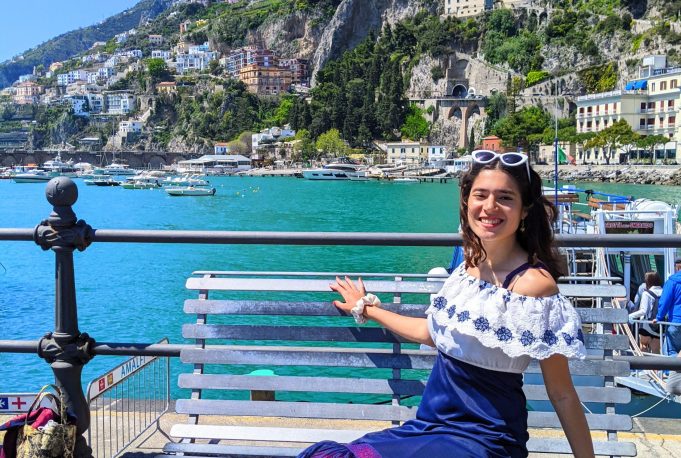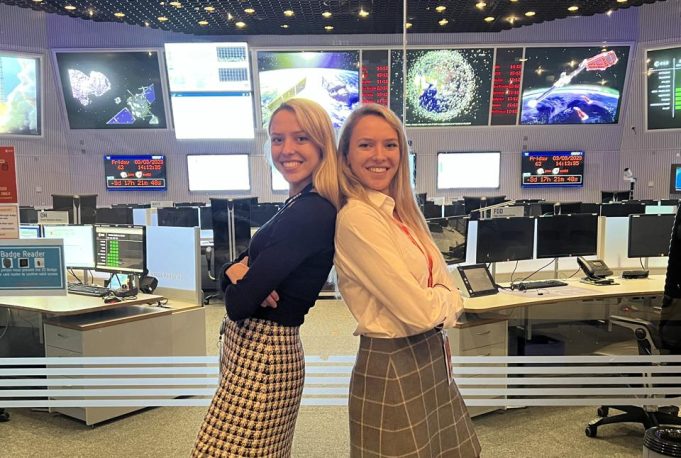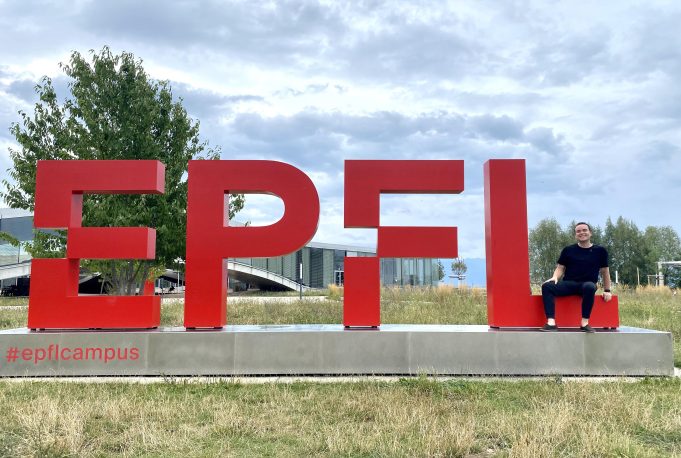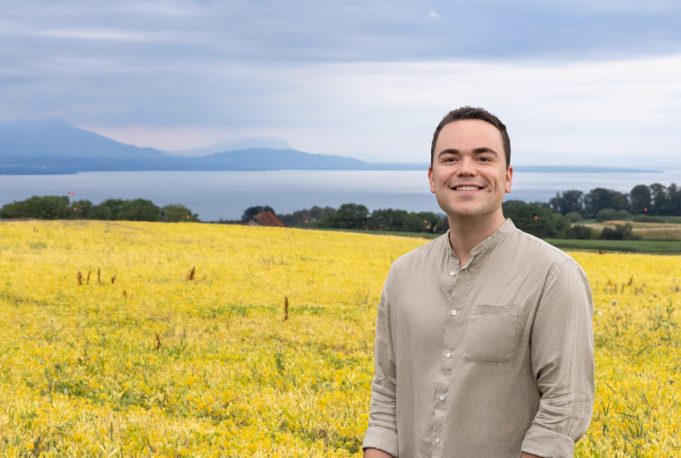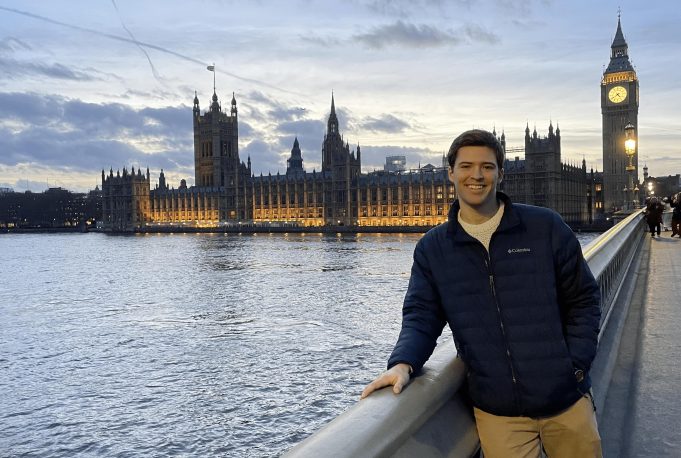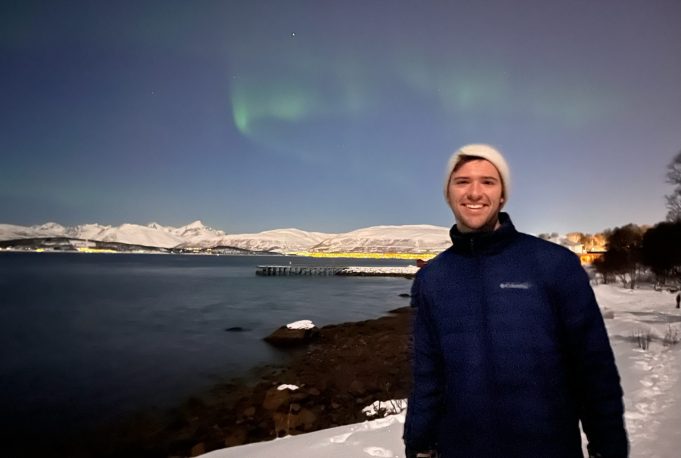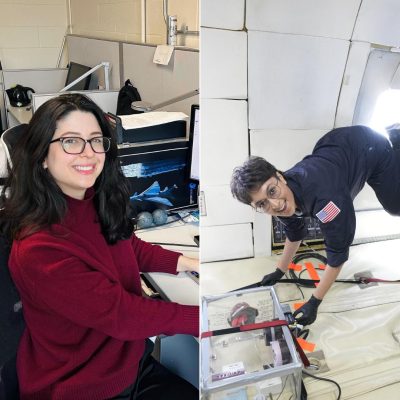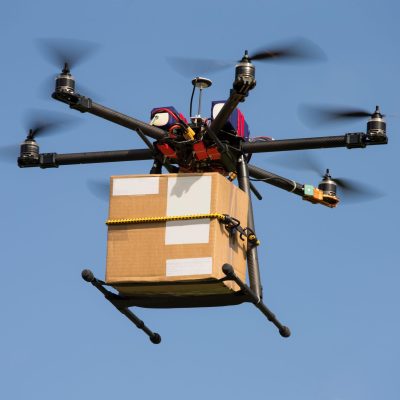Members of the Astrodynamics, Space Robotics, and Controls Lab (ARCLab) have been traveling abroad to foster international collaborations and research in the field of space exploration and technology. Through their studies abroad, students experience the importance of interdisciplinary collaboration and knowledge exchange in advancing our understanding of the universe.
“Aerospace and space exploration is an international endeavor; I believe that by broadening their horizons and collaborating internationally, MIT students are better equipped to be leaders in our field,” says ARCLab director Prof. Richard Linares.
Here, a few students share reflections about their experiences:
Adriana Mitchell: Politecnico di Milano, hosted in Milan, Italy for Spring 2022
I spent the 2022 spring semester in Milan, Italy, hosted by the Deep-space Astrodynamics Research and Technology (DART) group, led by Professor Francesco Topputo, at Politecnico di Milano.
The DART group was awarded an European Space Agency grant to perform a study of the M-ARGO (Miniaturised Asteroid Remote Geophysical Observer) mission, a CubeSat asteroid rendezvous mission. The target asteroids being considered for this mission are small and faint, inspiring our collaboration topic to address the challenges of low signal-to-noise ratio (SNR) in commercial-off-the-shelf CubeSat sensors. We developed a design tool that incorporates camera parameters, asteroid parameters, approach phase geometry and an Earth-observation based SNR boosting technique, to ensure the autonomous detection of small, faint near-earth asteroids during the approach phase of a CubeSat asteroid-rendezvous mission.
The collaboration resulted in a paper, ”Improved Detection of a Near-Earth Asteroid from an Interplanetary CubeSat Mission,” that has been submitted to Acta Astronautica.
I greatly enjoyed my time in Milan, the fashion capital of the world, and exploring Italy’s culture through cuisine and travel. My work abroad was supported by the GEM Fellowship, MIT MISTI, and the Fratelli Roberto ed Agostino Rocca Foundation.
Celina Pasiecznik: European Space Agency, hosted in Darmstadt, Germany, Spring 2023
I am grateful to Professor Richard Linares, who gave me the opportunity to intern at the European Space Agency at the Operations Centre in Darmstadt, Germany in February-March 2023. My visit was part of a collaboration between ARClab and ESA to verify and improve our space debris model called MOCAT. My research focused on assessing how fragmenting objects and the disposal of satellites and rocket bodies affect the long-term predictions for space debris populations. I also compared various versions of the MOCAT model to ESA’s DELTA model. Our work led to a conference paper and presentation given at the 2023 AAS/AIAA Astrodynamics Specialist Conference this past August. It was an honor to work with several researchers at ESA, and I am thankful for all that I have learned through this collaboration.
Thomas González Roberts: Swiss Federal Institute of Technology Lausanne, hosted in Lausanne, Switzerland, Summer 2023
Last summer, I joined the École Polytechnique Fédérale de Lausanne (EPFL) Space Center (eSpace) as a visiting researcher, supported by the ThinkSwiss Research Scholarship from Switzerland’s State Secretariat for Education, Research and Innovation.
I am thrilled to have had this opportunity to collaborate with interdisciplinary scholars—with academic expertise spanning astrophysics, mechanical engineering, environmental economics, and more—at a critical time in my research career. My time at eSpace both informed my doctoral research and nurtured it. EPFL was an ideal host institution for me due to its global leadership in space sustainability studies and its proximity to Geneva, where I conducted research interviews with career professionals from the International Telecommunication Union (ITU), a specialized agency of the United Nations that serves as the leading regulatory body for satellite communications.
Despite its great distance from my home department in the United States, Switzerland’s historical role as an arbiter for international coordination in the radio-frequency spectrum—the spoken language of Earth-orbiting satellites and the ground stations that support them—made it a natural incubator for my doctoral work in aeronautics and astronautics. The environment at eSpace, in particular—under the leadership of its executive director Emmanuelle David and academic director Prof. Jean-Paul Kneib—is a direct source of inspiration for the kind of interdisciplinary research group that I would like to create in my own career. The team is close-knit, enjoying espressos together in the beautiful EPFL gardens and lunches at the shores of the glimmering lac Léman. The personal friendships amongst the colleagues in the group foster meaningfulness in the collaborative research for which eSpace is well known. I aspire to design and lead a research group that allows for similar experiences for my own students and collaborators in the future.
William Parker: British Antarctic Survey, hosted in Cambridge, UK for Fall 2023 semester
I recently returned from spending the Fall 2023 semester as a visiting researcher with the British Antarctic Survey (BAS) in Cambridge, UK, where I was hosted by their Space Weather and Atmosphere Team. My research at BAS focused on better understanding how space weather forecasting uncertainty impacts satellite conjunction assessment and the decision-making process for performing collision avoidance maneuvers. My time in the UK also led to an ongoing collaboration between MIT and the University of Birmingham to investigate how greenhouse gas-driven climate change impacts space debris accumulation and the overall satellite carrying capacity of low earth orbit (with several papers soon to be published on this work). These efforts span the fields of astrodynamics, space physics, and atmospheric science. Forging diverse international collaborations helps us to solve such complex problems that require unified global action.
Adriana Mitchell
Adriana Mitchell
Celina Pasiecznik
Thomas González Roberts
Thomas González Roberts
William Parker
William Parker
Adriana Mitchell
Adriana Mitchell
Celina Pasiecznik
Thomas González Roberts
Thomas González Roberts
William Parker
William Parker

